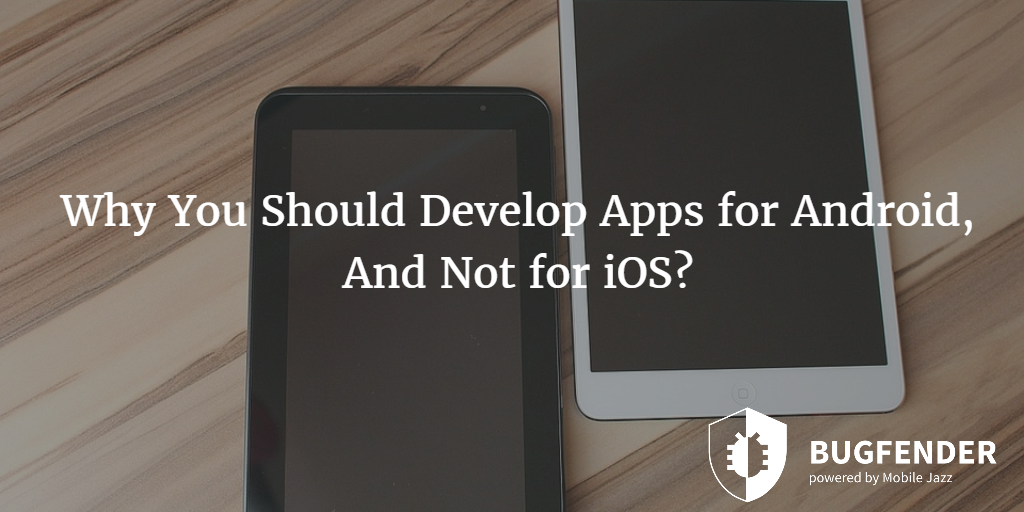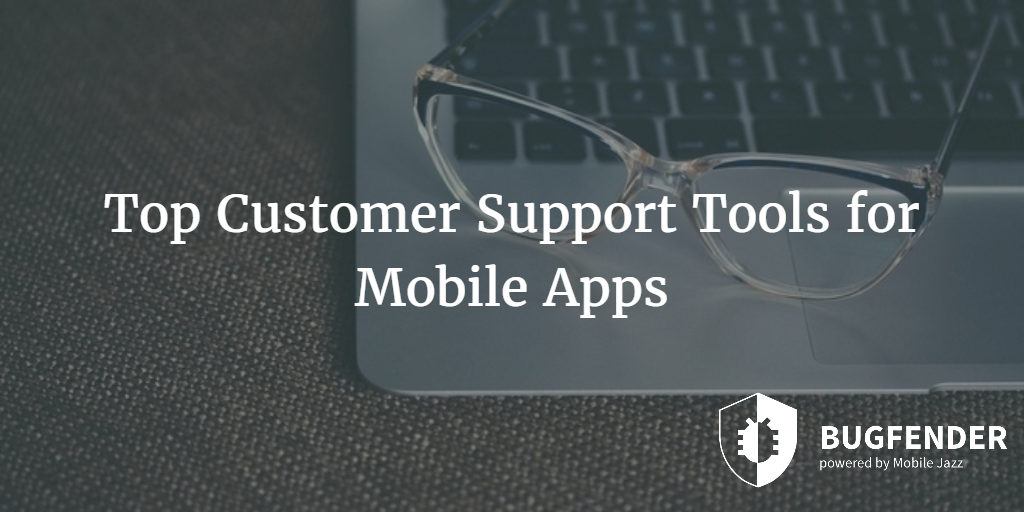
6 Minutes
Why You Should Develop Apps for Android, And Not for iOS?
Fix Bugs Faster! Log Collection Made Easy
Are you thinking of start developing mobile apps and don’t know which platform would be the best choice? This is a dilemma almost every new developer faces. There are many factors that can influence this decision and some of those factors are even variables that could be different for different people. Based on the scenario, Android app development could be a more suitable choice for new developers. And here are some reasons why you should develop apps for Android, and not for iOS.
Programming Language
When it comes to programming language, and especially if you are new to app development industry and want to learn a language from scratch then Android has clear advantage here. Android app development uses Java while iOS uses Objective-C. Java is considered an easier language as compared to Objective-C because it’s a newer and high level language. In other words, you need to write more lines of code in Objective-C than Java to get the same task done. Java also provides better and advanced data structures. Although Swift for iOS has been changing this mindset but still Android programming language is easier.
Portability
As mentioned above, Android development is done using Java which is also used in many other mobile operating systems including Symbian, Ubuntu and in BlackBerry devices. This means Android apps could be ported to these devices and platforms with minimum changes. On the other hand, Chrome OS is getting popularity all over the globe and it also uses Java. Android devices would be installed on devices running Chrome OS. Microsoft announced earlier the company is working on an easy to use method to allow users to install Android apps on their Windows 10 devices. This would open a whole new market for Android apps and more users mean more options for developers.
Google Play Store
Android developers can launch their apps on Google Play Store and after few hours those apps would be searchable by billions of worldwide users. On the other hand, Apple App Store takes few weeks to approve apps. This lengthy process could be acceptable if only done once, but whenever developers update their apps, they need to wait again for weeks to see the updated version in action. The process not only delays the new features but if the initial version of your app needs something fixed immediately, you cannot possibly do that in case of iOS apps. On the other hand, Android developers can update their apps many times a day if they want.
Controlled Releases
Google Play Store allows developers to release alpha and beta versions of their apps in a controlled environment where only specified group of users would be able to download and install the app. This way, developers can get instant feedback from those users and release the next version. Similarly, developers can also update their apps and control the users who have access to that update. By analyzing and monitoring the feedback of that controlled group, developers can make necessary changes to their app. Unfortunately, no such feature is offered by Apple on its app store.
[random-ad]
App Development
Earlier, Android development was done on Eclipse using ADT; it was a customized development kit powered by Google and it did work for many years. Recently, Google has replaced it with officially developed development software named Android Studio which has changed the development process dramatically. On the other hand, iOS has been using Xcode for years; Xcode is way better than Eclipse yet Android Studio is a better development tool than Xcode in every sense. Android Studio is available for free, you can develop app there and launch them on your own devices without any fee. However, Xcode needs $99 per year for app development and deployment on the devices.
Lower Costs
In order to start app developing for iOS devices, you need a Mac and $99 per year subscription. As Xcode is only compatible with Mac OS, you cannot use other computers and operating systems. Also, you can download and use Xcode for free but you need Apple Developer Account for releasing apps on Apple App Store and this account costs $99 per year. On the other hand, Android Studio is compatible with Windows, Linux and also Mac that means you can do Android app development on almost every laptop or computer. Android account costs $25 onetime fee.
Market Share and Profitability
Without any doubt, Android is dominant here with it’s nearly 80% market share. There are almost two billion Android devices including phones, tablets and wearables as compared to half billion iOS devices. So, Android developers have a better chance of success because of bigger market share. Earlier, it was true that iOS users spend more money on apps than Android users but now this trend has changes. With so many premium Android devices in the market, Android is no longer a “cheaper” option. Android apps are as profitable as iOS apps and they have a unique advantage too; ad costs are lower on Android platform than iOS that means developers can show ads with lower costs to a bigger market and make more revenue than iOS apps.
How Bugfender Can Help You Develop Better Apps?
Whether you are developing apps for iOS or for Android devices, you need to test those apps on real devices to find bugs. Unfortunately, even advanced emulators can miss some issues that later your users would discover and of course they won’t be happy about it. Bugfender not only allows users to find and fix those bugs before users discover them but also help developers overcome the issue of Android fragmentation.
The tool is specifically developed to report full failure as well as abnormal behavior on real devices. Most of the time those issues are impossible to reproduce in a contained environment because developers don’t know what triggers them; perhaps it is caused by other apps installed on the device or because of a faulty SD card, who knows.
Bugfender sends detailed logs and analysis of the app behavior and developers, without having physical access to the device, can debug the issue, find the root cause, fix it and update the app on other users’ devices.
Expect The Unexpected!
Debug Faster With Bugfender



